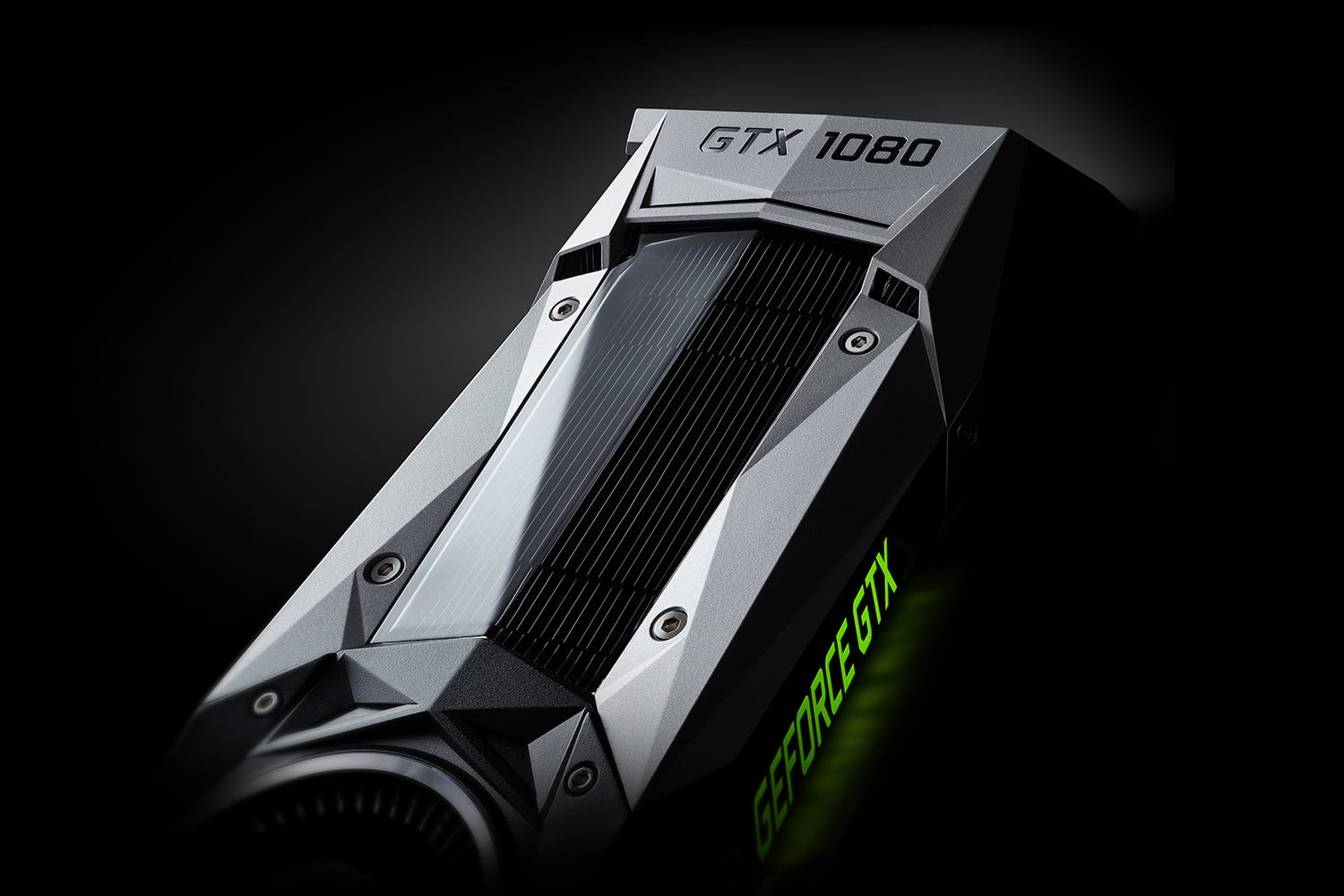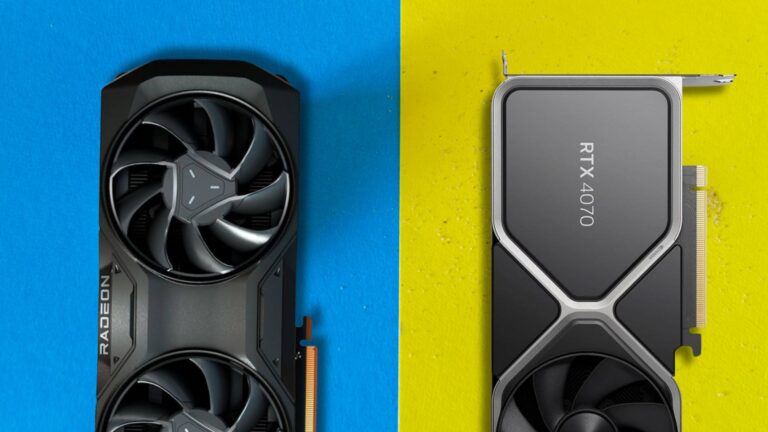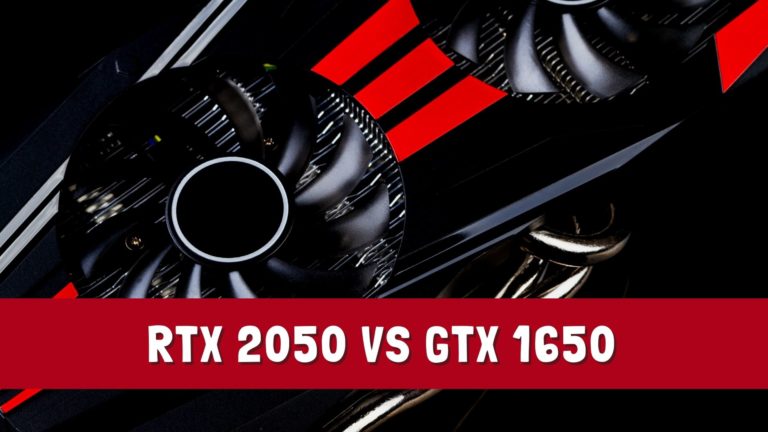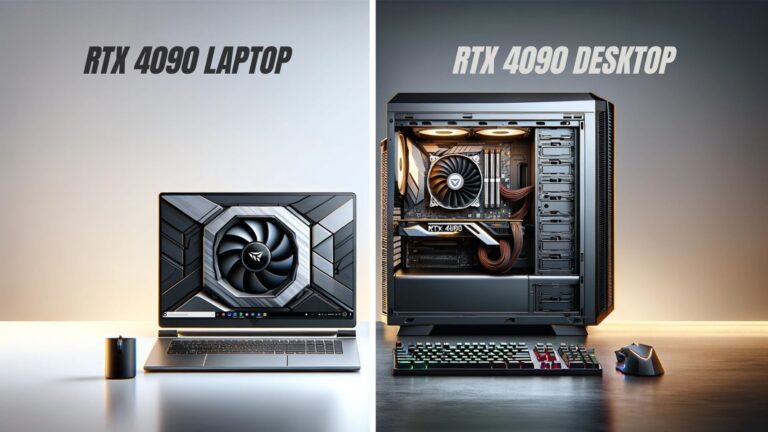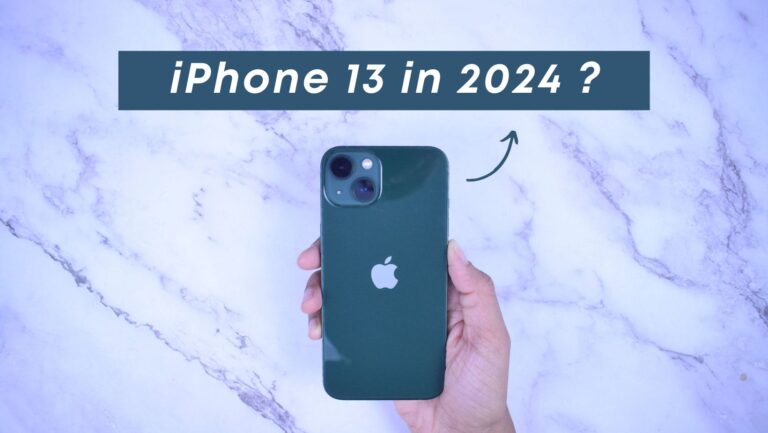The Nvidia RTX 2070 and older GTX 1080 are both powerful gaming graphics cards, but which should you pick, and is it worth upgrading? In this article, we’ll check out a 10 game benchmarks at 4K, 1440p, and 1080p to help you see the performance difference between them.
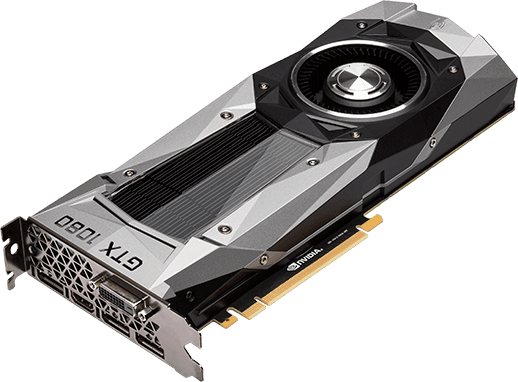 | 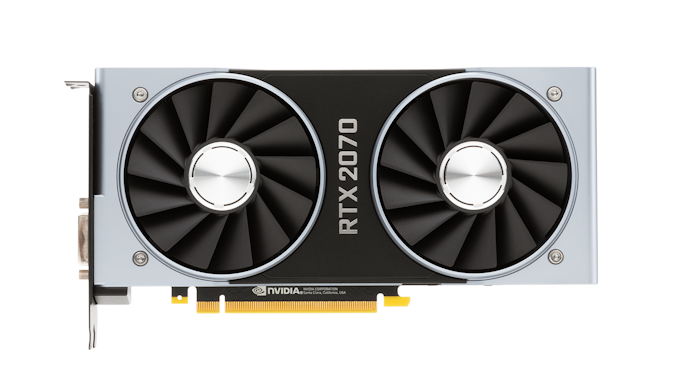 |
|---|---|
| GTX 1080 | RTX 2070 |
| BUY NOW | BUY NOW |
| PROS | PROS |
| Great all round performance. Makes 4K gaming viable. Classy design. Quiet Cooler. | Playable 4K gaming across a variety of titles. Impressive synthetic performance. Surprisingly lower energy consumption. |
| CONS | CONS |
| Expensive launch price. Aftermarket cards will be better specced for less. | Expensive for a ‘mid-range’ GPU. RTX and DLSS-enabled games still not out yet. No SLI option. |
SPECIFICATIONS
| OVERVIEW | GTX 1080 | RTX 2070 |
| Card Status | Released | Released |
| Manufacturer | NVIDIA | NVIDIA |
| Release Date | 27th May, 2016 | 17th October, 2018 |
| Launch Price | $599 USD | $499 USD |
| Board Model | NVIDIA PG413 | NVIDIA PG160 |
| GPU | GTX 1080 | RTX 2070 |
| GPU Model | 16nm GP104-400 | 12nm TU106-400/A |
| Cores : TMUs : ROPs | 2560 : 160 : 64 | 2304 : 144 : 64 |
| CLOCKS | GTX 1080 | RTX 2070 |
| Base Clock | 1607 MHz | 1410 MHz |
| Boost Clock | 1733 MHz | 1620 MHz |
| Memory Clock (Effective) | 1251 (10008) MHz | 1750 (14000) MHz |
| Computing Power (FP32) | 8,228 GFLOPS | 6,497 GFLOPS |
| MEMORY | GTX 1080 | RTX 2070 |
| Memory Size | 8192 MB GDDR5X | 8192 MB GDDR6 |
| Memory Bus Width | 256-bit | 256-bit |
| Memory Bandwidth | 320.26 GB/s | 448 GB/s |
| PHYSICAL | GTX 1080 | RTX 2070 |
| Interface | PCI-Express 3.0 x16 | PCI-Express 3.0 x16 |
| Thermal Design Power | 180 W | 175 W |
OVERVIEW
GRAPHICS CARDS USED:
- Windforce RTX 2070
- Gaming X Plus GTX 1080
The RTX 2070 is coming with the 12 nanometer Turing TU106 GPU with 2,304 CUDA cores whereas the 1080 is coming with the 16 nanometer Pascal GP104 GPU with 2560 CUDA cores.
Let’s talk about the clocks. The RTX 2070 went all the way up to 1845 MHz whereas the GTX 1080 went up to 1974 MHz which is quite difficult for a GTX 1080, they tend to go up to around the 2000 megahertz mark.
Now as far as memory goes they’re both coming with 8 gigabytes but the RTX 2070 has GDDR6 memory at 14,000 MHz compared to the GDDR5X memory in the GTX 1080 at 11,000 MHz.
TDP wise, RTX 2070 coming in at 185 watts and the GTX 1080 coming in at 180 watts, so not much difference there.
The Gaming X Cards have been around for quite a while now. They’re generally fairly solid. They’re quite slim but they’re quite fat. I’ve always liked using them and they are good cards.
The Windforce as well, this has been around for a long time. Windforce goes all the way back before the 500 series. Of course, it made a lot of improvements to it and that’s the same with this card. It’s a lot longer than the Gaming X which is good but it isn’t as fat.
Both of these cards, I would say have decent coolers with them. So let’s jump into the benchmarks and see which one of these cards wins.
PERFORMANCE
SYSTEM SPECS:
- CPU: Intel Core i9-9900K
- COOLER: Corsair Hydro Series H100i V2
- MEMORY: G.SKILL 32GB Ripjaws V
- MOTHERBOARD: MSI Z390 Gaming
- POWER SUPPLY: EVGA 750W Gold
- SSD: Samsung 970 PRO 500 GB
- OS: WINDOWS 10 PRO
Monster Hunter: World
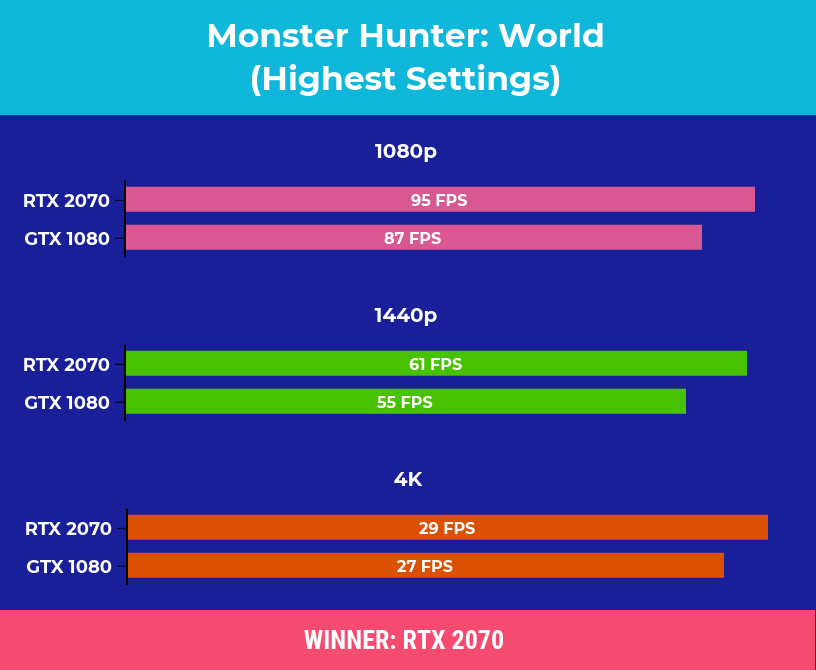
Monster Hunter: World was tested with the built in benchmark, at 1080p the 2070 moves further ahead of the 1080 as we step up in settings, at the highest settings the 2070 is 8.4% ahead of the 1080. At 1440p the frame rates are still pretty decent with both cards, but there’s a larger 9.8% difference between the two. At 4K you’ll probably need to use lower settings for a good experience. At the highest settings the 2070 is now 6.8% ahead of the 1080.
Far Cry 5
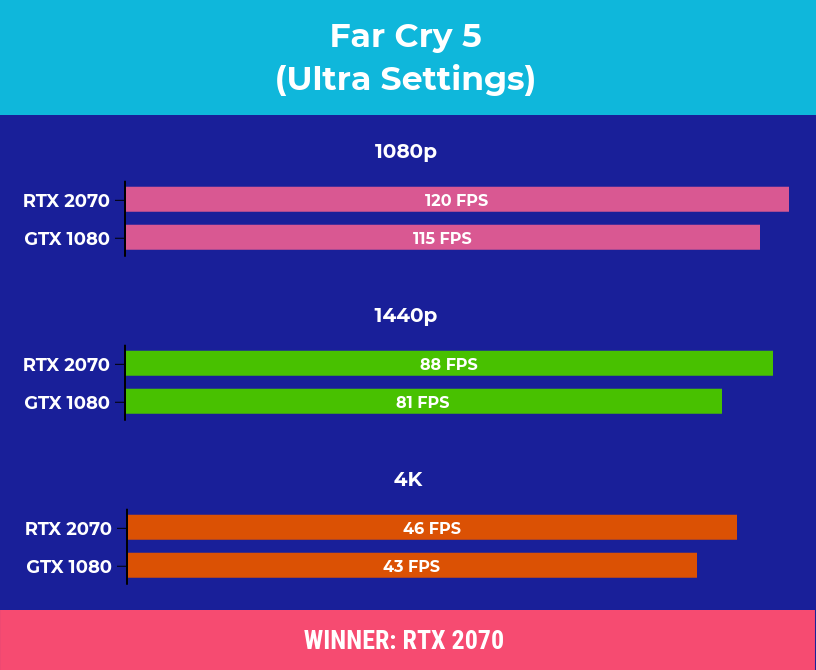
Far Cry 5 was also tested with the built in benchmark, the results were pretty good for this intensive test, and the 2070 was 4.1% ahead of the 1080 at ultra settings. Stepping up to 1440p, the results are still pretty good for this test, and the 2070 is now performing 6.7% better than the 1080 in terms of average frame rates at ultra settings. At 4K the 2070 was now scoring 6.5% ahead of the 1080.
GTA 5
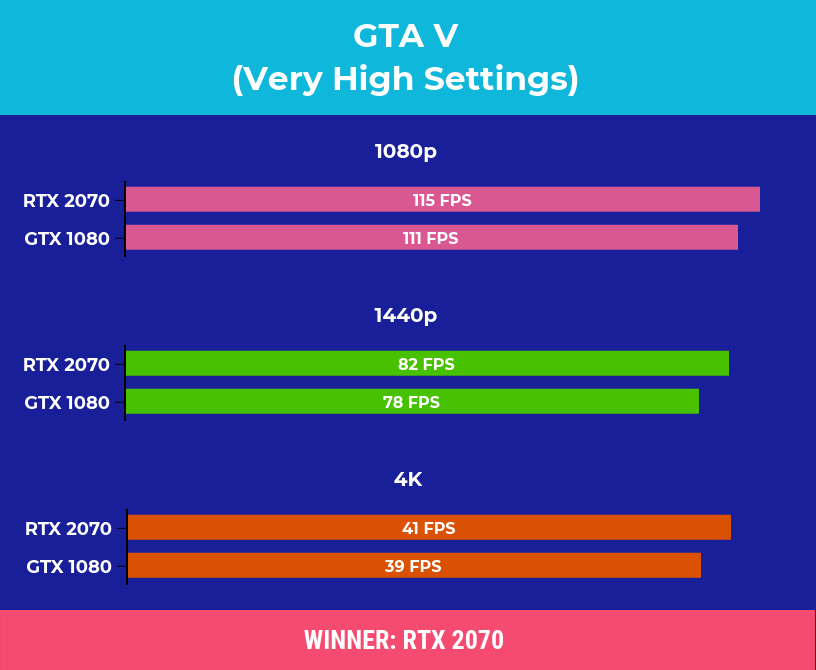
GTA 5 was again tested using the built in benchmark, and at 1080p, a 3.4% boost with the 2070 at very high settings. At 1440p this rises quite a lot, with the 2070 now 4.8% ahead of the 1080 with very high settings. At 4K the difference between the two cards rises further still, with the 2070 now performing 4.7% better than the 1080 at very high settings.
Destiny 2
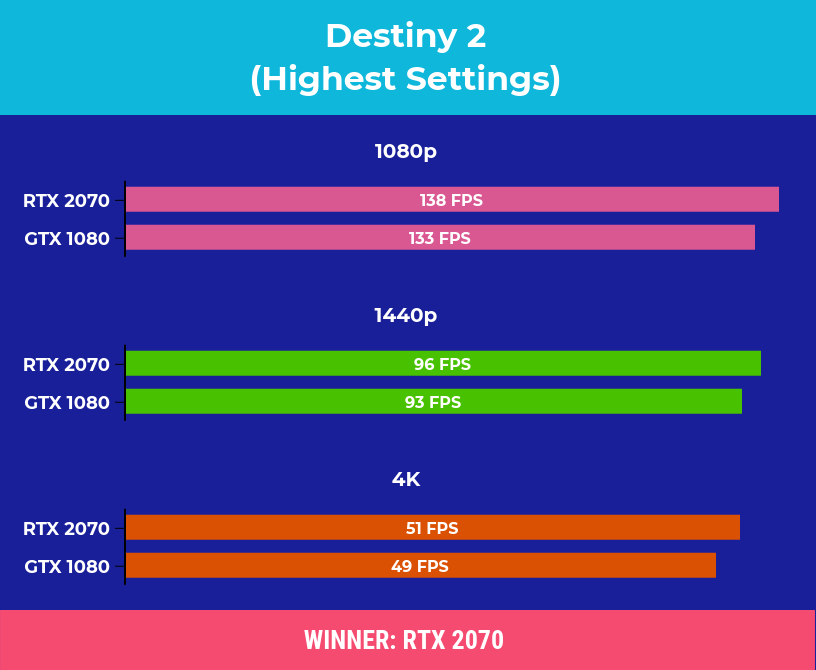
Destiny 2 was once again tested with the built in benchmark, and as a more intensive game the frame rates at highest settings aren’t that high, even at 1080p, however the 2070 was still 3.6% ahead of the 1080. At 1440p the 2070 is still able to average 90 FPS at highest settings in this test, and was now performing 3.1% better than the 1080. At 4K the difference between the two rises further, with the 2070 now 3.9% ahead of the 1080 at highest settings, although the frame rates are fairly low now and lower settings would definitely be needed to play well.
F1 2018
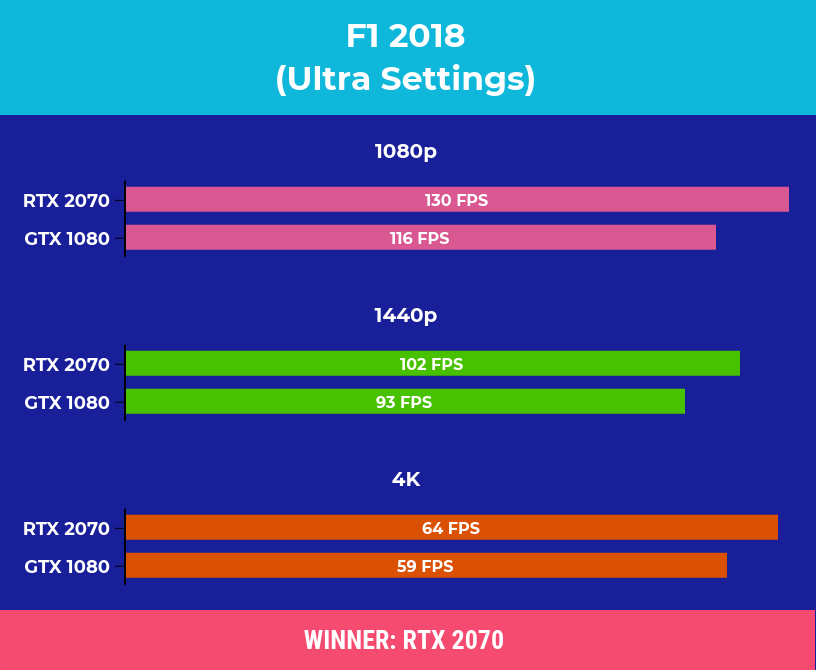
F1 2018 was tested using the built in benchmark, and at 1080p there was a 10% improvement with the 2070. At 1440p the 2070 is again ahead in all tests, lowering to 8.8% higher than the 1080 at ultra settings at this resolution. At 4K the performance of the 2070 was 7.8% ahead.
PUBG
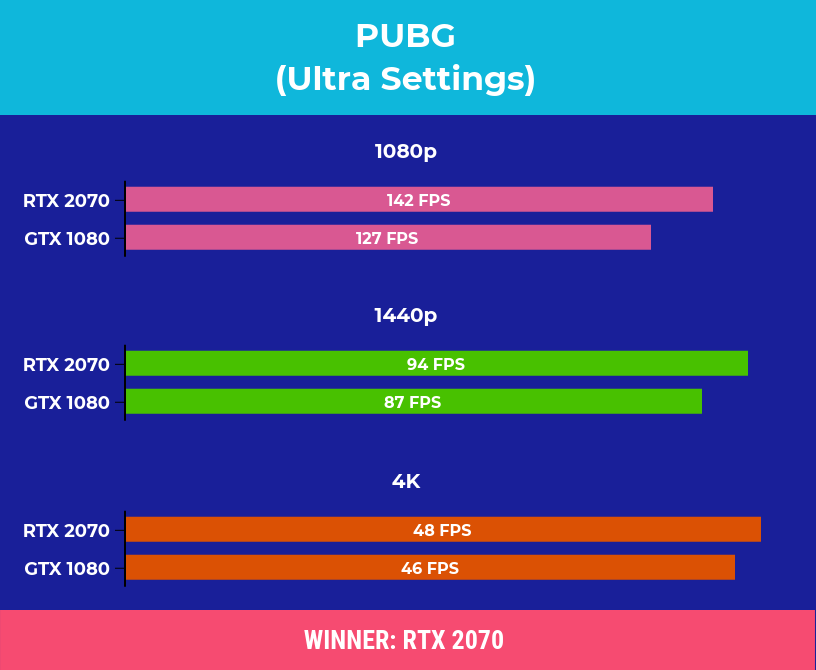
PUBG was tested using the replay feature, at 1080p the frame rates are quite high, considering this is a pretty unoptimized game, and there was a decent 10% improvement with the 2070 at ultra settings. At 1440p this lowers a fair bit, with the 2070 now averaging 7.4% higher frame rates than the 1080 at ultra settings, and the frame rates at all settings with either cards are decent for this game. At 4K the 2070 is still quite ahead of the 1080.
Fortnite
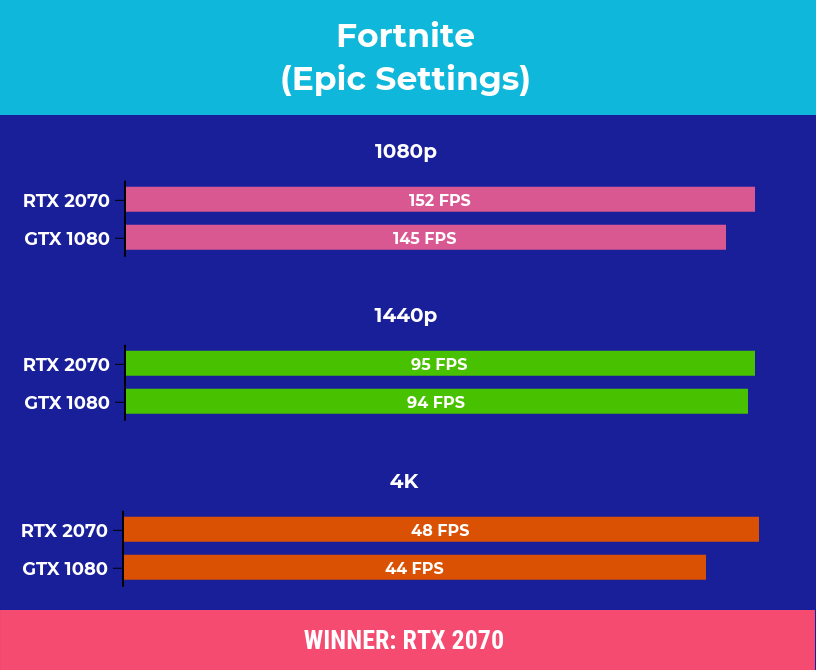
Fortnite was tested with the same replay, at 1080p we’re getting excellent frame rates with either card, although the 2070 was performing 4.6% better at epic settings, a pretty big difference. Moving up to 1440p the frame rates drop down a bit, but still pretty good performance for the most part. The 2070 is still performing 1% better at epic settings in this test. At 4K the frame rates at higher settings drop down quite a bit, although with the 2070 we’re still able to average 50 FPS at epic settings, and the 2070 was around 8.3% better than the GTX 1080 now.
Battlefield V
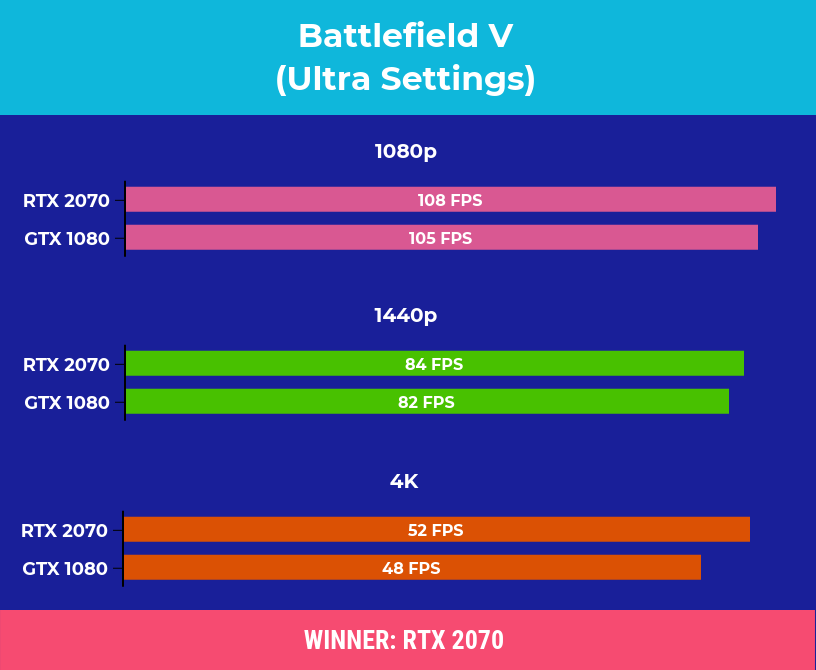
Battlefield V was tested with the built in benchmark, and we’re seeing ultra settings, especially with the 2070, which was a large 2.7% improvement over the 1080 at ultra settings at 1080p. At 1440p the frame rates are still very high, even at ultra settings, but the 2070 is now 2.3% ahead of the 1080 at ultra settings. At 4K, the 2070 now a high 7.6% better in terms of average frame rates than the 1080 at ultra settings.
Shadow of the Tomb Raider
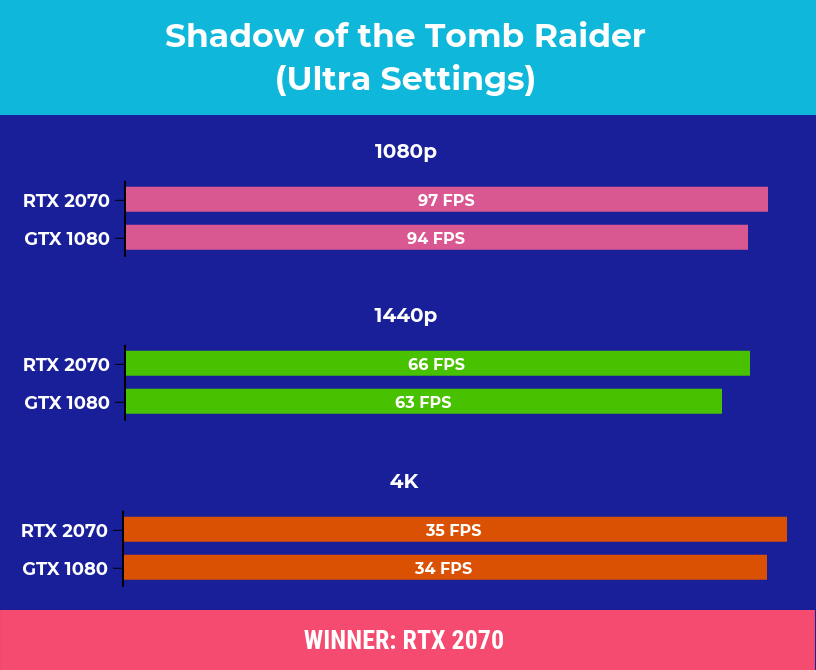
Shadow of the Tomb Raider was tested with the built in benchmark, at 1080p the 2070 moves further ahead of the 1080 as we step up in settings, at the ultra settings the 2070 is 3% ahead of the 1080. At 1440p the frame rates are still pretty decent with both cards, but there’s a 4.5% difference and still able to average over 60 FPS here. At 4K you’ll probably need to use lower settings for a good experience. At the ultra settings the 2070 is now 2.8% ahead of the 1080.
Assassin’s Creed Odyssey
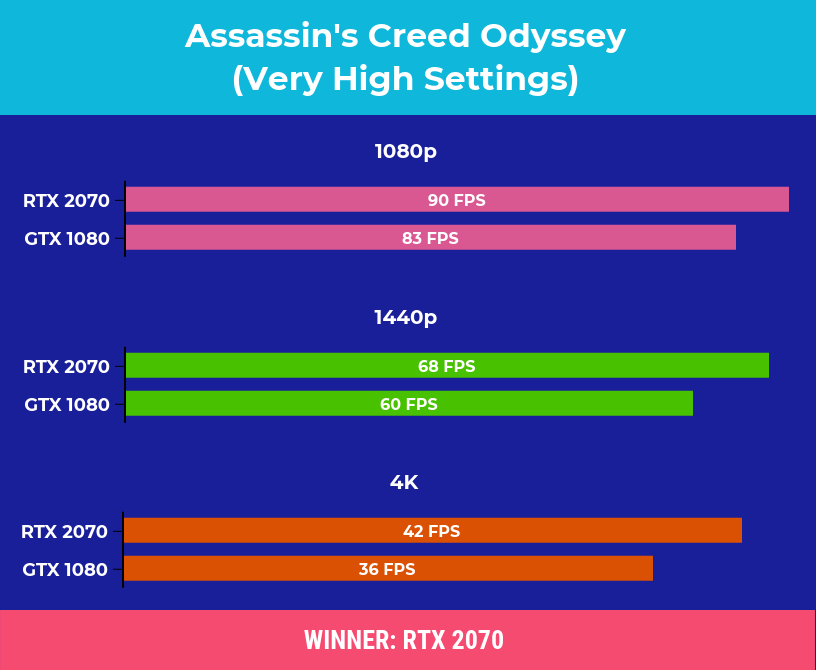
Assassin’s Creed Origins was also tested with the built in benchmark, the results were pretty good for this intensive test, and the 2070 was 7.7% ahead of the 1080. Stepping up to 1440p the results are still pretty good for this test, and the 2070 is At 4K the lower settings are performing quite a bit better than the higher ones, and at very high settings the 2070 was now scoring 14% ahead of the 1080.
CONCLUSION
Here the clear winner is RTX 2070 because it performs slightly better in games. The major difference are the extra features like Ray tracing and DLSS.
Based on the performance difference there’s no real reason to upgrade from the 1080 to the 2070, it would make more sense to go to the 2080 or 1080Ti. If you’re picking between them, both seem pretty good for 1080p and 1440p gaming, I wouldn’t go for either for 4K, and of course the 2070 has the option of raytracing, which in theory will be supported in more games going forward, but that’s yet to be seen.
Both are very capable of providing a good gaming experience. It really comes down to what sort of games you want to play, what resolutions you want to play at, and what frame rates you want to target. Personally I’d probably go the 2070 for 1440p gaming and also have the extra features like ray tracing and DLSS.
